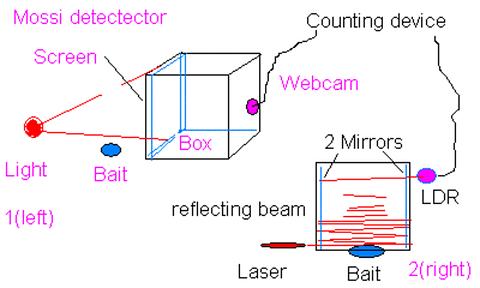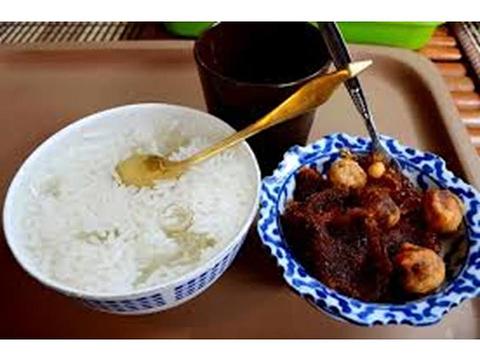เรื่องเกี่ยวกับยุง
เรื่องเกี่ยวกับยุง
It is nearly 10 years now since one of my good friend on the Net passed away. We never met face-to-face but had many long discussions on various subjects over the Internet. But this :
Mosquitoes are being bred with genes that will kill them by Larra Morris April 30, 2014 at 9:36 AM
The mosquitos in Brazil (known as Aedes aegypti) carry dengue fever, and the World Cup also happens to be taking place happening in Brazil this summer, so authorities have approved the release of genetically reprogrammed mosquitoes that will wipe out their own species. The male mosquitoes are given a flawed gene and sent out to to go forth and multiply, spreading this gene into the wild. Then, mosquito offspring who inherit the gene die before they can sexually mature and reproduce. Trials have shown a 90% decrease, according to the biotech company that created the gene.
- See more at: http://www.eejournal.com/archives/fresh-bytes/mosq...
It brings back a fond memory and to celebrate the life of
who was a strong advocate of Thai student inventors. I'd like to offer an example of our co-operation back in 2005. (A drawing of --a mosquito detector/counter-- involved in our discussions is shown here, See link below for more.)
<p>เรื่องสงสัยเกี่ยวกับยุง - วิชาการ.คอม
http://www.vcharkarn.com/include/vcafe/showkratoo….
www.vcharkarn.com › กระทู้Translate this page
Feb 27, 2005 - Asian Tiger Mosquito (Aedes albopictus) เราเรียกง่ายๆว่า ยุงลาย …… งานที่ผมทำที่เลี้ยงยุง เพื่อจะศึกษาแบคทีเรียที่อยู่ในยุงที่ชื่อ Wolbachia ครับ.</p><p>And for those who are still interested in (searching the Net with) ‘ mosquito wolbachia’ :</p><p>Worldwide dengue prevention closer following successful …
www.imb.uq.edu.au › IMB News › 2011
Aug 25, 2011 - “The field trial involved releasing Wolbachia- mosquitoes every week for 10 … The program plans to undertake further trials in Cairns over the …</p><p>Wolbachia and the biological control of mosquito-borne …
www.ncbi.nlm.nih.gov/pubmed/21546911
by I Iturbe-Ormaetxe - 2011 - Cited by 71 - Related articles
EMBO Rep. 2011 Jun;12(6):508-18. doi: 10.1038/embor.2011.84. Epub 2011 May 6. Wolbachia and the biological control of mosquito-borne disease.</p><p>Wolbachia Invades Anopheles stephensi Populations and …
www.sciencemag.org › 10 May 2013
by G Bian - 2013 - Cited by 40 - Related articles
May 10, 2013 - Furthermore, wAlbB conferred resistance in the mosquito to the … Evolutionarily conserved Wolbachia-encoded factors control pattern of …</p><p>Strategies for Introducing Wolbachia to Reduce …
www.plosntds.org/…/info%3Adoi%2F10.1371%2Fjourna…
by PA Hancock - 2011 - Cited by 24 - Related articles
Apr 26, 2011 - However, the ability of Wolbachia to assist in the control of mosquito-borne diseases will depend on their dynamics in natural mosquito …</p><p>Harnessing mosquito–Wolbachia symbiosis for vector and …
www.sciencedirect.com/science/article/pii/S0001706…
by K Bourtzis - 2013 - Cited by 4 - Related articles
Symbiotic interactions between Wolbachia and insect species could be harnessed for control of mosquito-borne pathogens, by manipulating insect reproduction …</p><p>Wolbachia-Infected Mosquitoes Released In Vietnam, With …
www.huffingtonpost.com/…/mosquitoes-dengue-vietn…
Nov 5, 2013 - Their plan was to test the Wolbachia mosquitoes on a small island off the … there have been several promising new attempts to control dengue.</p><p>Could Wolbachia be an alternative to dengue-fighting ...
blogs.plos.org/…/could-wolbachia-be-an-alternative-to-dengue-fighting-…
by V Le - Related articles
Jan 3, 2013 - Florida, however, is exploring a different approach to rid the state of their mosquito problem. Last December, mosquito control officials …</p><p>Of course, these later research studies shows how far the world has moved forwards and how little we knew about mosquitoes then. What more important is that we showed a way to work together on the Net using vcharkarn.com as a medium and how we did enjoy our interactions.</p><p>Salute to you </p><p>โก๋ฯ ( Mr Vidhya S )
( http://www.vcharkarn.com/my/705 )</p><p></p>
ความเห็น (7)
"อยากรู้ว่า..ทำไมยุงร้ายกว่าเสือ..ตรงไหน"..มีคนทำวิจัยหรือยังคะ...
Dear ยายธี : I don't know of any research work on that ..ทำไมยุงร้ายกว่าเสือ..ตรงไหน perhaps one of our readers would car to try. A funding support would be difficult though ;-)
To me, mosquitos are as much victims as we are. They get blamed for being sick (with malaria, dengue fever, ...) and being carriers of terrible sicknesses. Our approaches to counter mosquito-borne diseases are to eradicate mosquitos (kill all the messengers). We do the same to chickens in bird flu outbreaks. Swine flu? how many pigs? Aids? How many people?
When we look at how many people are maned or killed by cars, we should wonder why we spend so much money building roads, buying cars and accessories and paying for petrol and maintenance when a lot fewer cars and a lot more bicycles would serve our commuting need --better-- in most cities.
It's cold down under and I have to find something warm to do ;-)
มีสิ่งหนึ่งที่ตั้งคำถามมาตลอดแต่ค้นหาคำตอบไม่เจอเกี่ยวกับยุงหรือแมลงกินเลือดเพื่อยังชีพว่ามีอะไรในเลือดที่จำเป็นสำหรับสัตว์พวกนี้ในการแพร่พันธุ์
คุณ sr พอจะแบ่งปันชุดความรู้ที่เกี่ยวกับเรื่องนี้ได้มั๊ยค่ะ
Hi rojfitness: Mosquitoes are "just" carriers or in another word "victims" of the dread diseases --too--.
Why don't we eradicate cigarettes, alcoholic drinks, cars and yes "pure sugar"? ;-)
There are a lot of learning and stories with pictures out there (on the Net), one can spend a lifetime on. ;-)
Ecologically, mosquitoes are also "food" for fish, birds and reptiles. Because mosquitoes get nectar (energy food) from plants, they are said to be "pollinators" too. We have much more to learn!
Dear หมอเจ๊ คนสวย แซ่เฮ : Long time - no see! How are you?
I should write another blog in g2k about mosquito research but let me share current "thinking" on mossy:
http://insects.about.com/od/flies/a/10-facts-about... says :
Mosquitoes may carry any number of deadly diseases, including malaria, dengue fever, yellow fever, and encephalitis. Mosquitoes also carry heartworm, which can be lethal to your dog.
Female mosquitoes need protein for their eggs, and must take a blood meal in order to reproduce.
Some mosquitoes specialize on other animals, and are no bother to us at all. Culiseta melanura, for example, bites birds almost exclusively, and rarely bites humans.
When the male and female meet, their buzzing synchronizes to the same speed.
Most mosquitoes emerge from their watery breeding ground and stay pretty close to home. But some, like the salt marsh mosquitoes, will fly lengthy distances to find a suitable place to live, with all the nectar and blood they could want to drink.
An adult mosquito may live 5-6 months.
Mosquitoes can detect carbon dioxide from 75 feet away.
Carbon dioxide, which humans and other animals produce, is the key signal to mosquitoes that a potential blood meal is near. They've developed a keen sensitivity to CO2 in the air. Once a female senses CO2 in the vicinity, she flies back and forth through the CO2 plume until she locates her victim.
http://nittygrittyscience.com/2011/05/04/human-blo... suggests in :
So what’s the secret ingredient in human blood?
No one knows for sure, but there have been some guesses made. One clue is that human blood is rich in an amino acid called threonine. Threonine is a key amino acid needed for the production of mosquito egg proteins. Threonine is also an nutrient that Wolbachia can’t make by itself–it has to get it from its host. Wolbachia may be depriving the mosquito’s eggs of threonine, leading to the loss in fertility when fed on non-human blood, which is lower in the amino acid.
Another possibility is cholesterol. Human blood tends to have more of it than that of say mice or chickens. Wolbachia needs cholesterol to make part of its cell wall, and the mosquito needs it to replenish its fat stores, creating another potential conflict between Wolbachia and the host mosquito.
www.isaaa.org/kc/cropbiotechupdate/article/default... reports
GM Mosquitoes Deployed to Control Asia's Dengue Fever
An initial field trial carried out in the Cayman Island last year, where about 300 million GM male mosquitoes were released, resulted to a decrease by 80% of the mosquito vector Aedes aegypti. In Malaysia, under the supervision of the Malaysian Institute of Medical Research, 6,000 male GM mosquitoes have been released in 21 December and was successfully completed in 5 January. The scientists hope to conduct bigger trials to test the technology further on its impact in the spread of the dengue virus.
Thanks to you, dear Khun sr.
It's truly a great pleasure to meet a Thai researcher on mosquitoes especially the one who cares for other forms of "life" with deeper understandings. As such, this world would be better.


